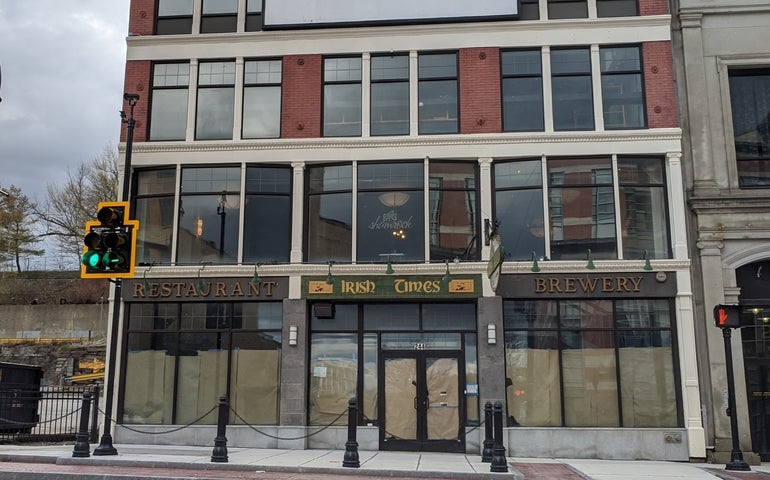The U.S. economy has entered a recession, the official arbiter of such cycles said Monday, saying the economic slowdown began before businesses starting shutting down due to the coronavirus pandemic.
The recession began in February, according to the Cambridge-based National Bureau of Economic Research, before the coronavirus pandemic made a major mark in the country or forced any broad business, school and other closures.
The proclamation ends the longest economic expansion in modern U.S. history: more than 10 years, dating to June 2009.
The National Bureau of Economic Research determined quarterly economic activity peaked in the last months of 2019. The monthly peak was in February. The bureau considers gross domestic product and gross domestic income in its calculation.
“The committee recognizes that the pandemic and the public health response have resulted in a downturn with different characteristics and dynamics than prior recessions,” the group said in a statement. “Nonetheless, it concluded that the unprecedented magnitude of the decline in employment and production, and its broad reach across the entire economy, warrants the designation of this episode as a recession, even if it turns out to be briefer than earlier contractions.”
Likewise, a similar peak is estimated to have taken place in the Worcester metropolitan area before the pandemic forced many out of work.
An economic index for Greater Worcester released in late April showed the region’s economy fell by 1.6% in the first quarter, a decline its author said underestimated the economic hit from the outbreak.
The employment and unemployment data Assumption College economics professor Thomas White uses to create the Worcester Economic Index is collected during the second week of each month, which missed the bulk of business closures taking place just after mid-March, when business and other closures began.
The index, which takes seasonal fluctuations into account, also shows a negative trend before the pandemic even hit. January had a 0.2% drop from the previous month, and February a 0.1% drop. New business corporations were down 7.9% for the quarter compared to a year prior.
The Worcester metro area’s unemployment rate ballooned in April to 14.4%, up from 3.1% in March. The one-month drop included a decline of roughly 10% in the area’s labor force. The city of Worcester’s unemployment rate jumped to 16.4% from 3.2%
The Massachusetts unemployment rate was 15.1% in April. Nationally, the unemployment rate in May made an unexpected relative improvement, dropping to 13.3% from 14.7% in April.

